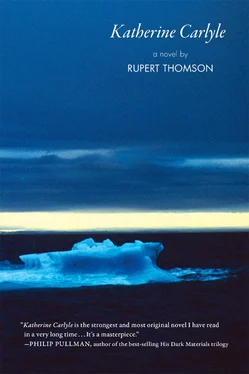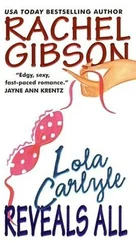“Sometimes, the first time,” he says in a low voice, “if a person’s very beautiful —”
“It doesn’t work?”
“Yes.” He grimaces. “It doesn’t work.”
“I didn’t know that.”
“I’m sorry. Maybe tomorrow …”
If what he says is true I suppose his failure is a compliment. I wonder if it also happened with Valentina. The first time.
He asks whether he can read to me. I can hardly refuse him. Putting on his glasses, he reaches for a book. “Do you know Heinrich Heine’s work?”
“I don’t think so.”
He reads a poem about love being more precious than the pearls in the sea, and another poem about a man cutting his soul into pieces. He reads a poem about a girl with a frozen heart beneath white branches. After fifteen or twenty minutes he looks at me and asks if I’m all right.
“That was lovely,” I say, “but I think, if you don’t mind, I’ll go back to my room now.”
“Of course.” All of a sudden he sounds serene, as if I have returned him to ground that is familiar and safe. It occurs to me that he might be relieved. “Here.” He passes me a black silk kimono.
“Thanks.” It feels cold and slippery, and I shiver as I put it on.
Back in my room I remember reaching between his legs and trying to make him hard, but his penis was small and slack and rubbery like the bit left over when you’ve tied a knot in a balloon. Even when I took it in my mouth it wouldn’t stiffen.
“What would you like me to do?” I asked. “Is there something special?”
His eyes were closed, and his face twisted in a kind of agony. “Nothing. It’s all right.”
He turned over in the bed and began to run his hands over my body. Though I knew he was attempting to arouse himself I felt, oddly, as if I were being searched. The silence in the room was pointed, critical. We couldn’t seem to move beyond the confines of our bodies.
Maybe tomorrow .
Outside, the wind has risen, and I’m conscious of being high up, on the top floor of a building. Only the terrace is above me, Japanese in its simplicity. The empty glass globes gleam on the table; the stems of bamboo stir. To the northwest, on the horizon, are the tall chimneys. Smoke leaks across the sky like ink in water. Like calligraphy. I think of all the people below me — reading, drinking, talking, making love — then I curl up on my side and face the wall. After a few minutes I drift backwards and downwards, sinking into a place that has no color, no light.
/
Not long before chemotherapy began my mother cut her hair off with the kitchen scissors. She did it in the living room, in front of the mirror with the varnished frame. I tried to stop her. You’re making mistakes , I cried. It doesn’t matter , she told me, laughing. It’s going to fall out anyway . I didn’t understand — I had no idea of what was coming — but she made it easier by turning it into a game. The golden hair on the floor resembled an illustration from a fairy tale.
A few months later I walked into her bedroom and found her lying on her back with her eyes closed. Only her head showed above the covers. It was the middle of the day. The sky in the window was patchy and gray, rain threatening. Rome in the winter, the river breathing its damp vapors into the city. All the old, sad stones. Her hair was gone by then. Her eyebrows too. She looked fragile, ethereal. Half erased. A baby bird, an alien. A ghost. My throat ached at the sight of her. I love you so much , I whispered. She wasn’t aware of me. She didn’t even wake.
There were good times after that, moments of almost hysterical elation, the brightness of forgetting. Then something would catch in me and I would remember what the future held. Like the statue of the winged woman in the Tiergarten, and those clouds gathering behind her, loaded, black …
I was with her when she died. It was the evening of May 12. My father was in the kitchen with my mother’s sister Lottie, who had flown over from England. He had opened a bottle of wine and laid out olives, artichokes, prosciutto, and fresh bread. To keep our strength up, as he said. I couldn’t eat. Instead, I sat by the bed, my mother’s hand in mine, the sky above the Vatican warm yellow streaked with red, like the flesh of a peach. The usual sounds rose up from the street — plates being stacked, a church bell tolling, a motorbike. I wasn’t conscious of my body, only my hand holding hers. I was walking along a beach. On one side tall grasses fenced me in. Bleached to a pale, sugarcane yellow, they tapped and clicked in the offshore breeze. Off to the right was a brooding ocean, the waves explosive, the dark blue farther out flecked savagely with white. The sand beneath my feet was cool and slightly gritty. I don’t know where I thought I was. Puerto Rico, perhaps. Or Nicaragua. No place I had ever been. My mother was drawing breath, with long gaps in between, each intake arduous and harsh. As I walked on that imaginary beach I remained aware of her breathing, regular, relentless — hypnotic. But then the sounds ended and I realized that the last breath I had heard had been her last, though I hadn’t known it at the time, having expected to hear another, and then another, having become accustomed to the rhythm, not having been able to accept, or even contemplate, the possibility of silence. It had been like being on a train and watching the telegraph poles flick by, the wires rising and falling, linking one pole to the next. You watch the poles, you’re always waiting for the next one, and then suddenly they’re gone. There’s nothing in the foreground, nothing to focus on. The view that was always there is all there is. Gaping. Empty. I stared at the veins on the back of her hand and thought about the blood slowing down. Once it stopped, it would never move again. She would never talk to me, or stroke my hair, or drive me to unexpected places. I buried my head in the duvet, and my body was returned to me, shaking uncontrollably, and cold.
/
“The way I see it,” Cheadle says, “you could use some support. Some backing.”
We are sitting at a corner table. It’s Saturday, a fortnight since I landed in Berlin. The restaurant walls are yellow and the air smells of lemongrass and coconut. The light is operating-theater bright.
“Here’s the thing.” The American hunches over, his head wedged between his shoulders, no neck apparent. “How about I adopt you?”
I’ve heard a few propositions in my time but never anything like this. A devious smile creeps onto his face, not because he’s joking but because he knows he has wrongfooted me.
“Adoption of adults,” he says airily, “it happens all the time. In Japan, for instance. To give the person in question better prospects.”
“Better prospects?” I consider his plastic raincoat, his dented face. His wild, wispy hair.
“We’d have to do it legally. Everything kosher. There’ll be forms to fill in. Depositions. Affidavits. Whatever the fuck the word is.”
I look past him, into the restaurant. The other customers are mostly people in their twenties. People leading normal lives. Apartments, jobs. Relationships.
“You only met me twice,” I say.
Cheadle finishes his whiskey, then reaches for his beer. “Sometimes you’ve got to go with your instincts.”
I could hardly disagree with that.
“Who’s the guy you were with the other night?” Cheadle asks.
“That was Klaus.”
“You sleeping with him?”
“Not really.”
“ ‘Not really.’ ” Cheadle chuckles.
“He’s been very generous,” I say.
“I bet he has.” Cheadle signals for another whiskey. “So anyway, you want to become my daughter?”
“I’m not sure my father would approve.”
Читать дальше












